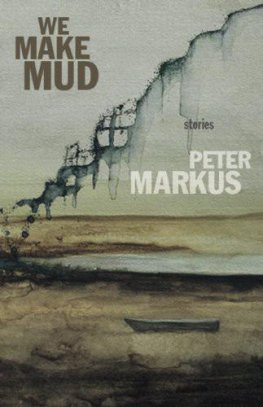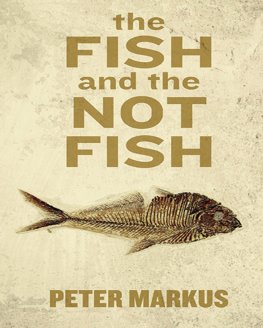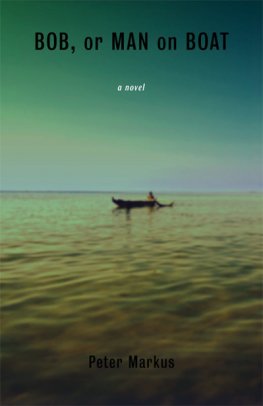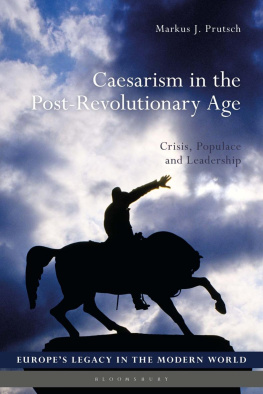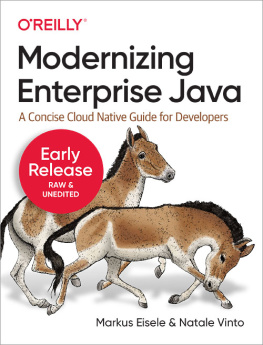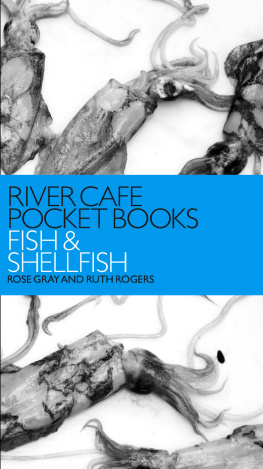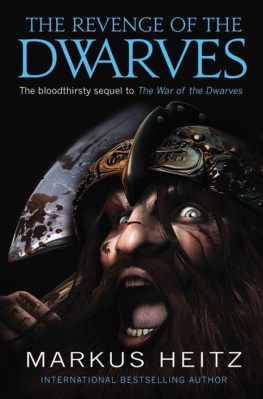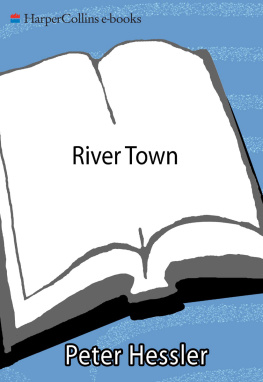Peter Markus - We Make Mud
Here you can read online Peter Markus - We Make Mud full text of the book (entire story) in english for free. Download pdf and epub, get meaning, cover and reviews about this ebook. year: 2011, publisher: Dzanc Books, genre: Prose. Description of the work, (preface) as well as reviews are available. Best literature library LitArk.com created for fans of good reading and offers a wide selection of genres:
Romance novel
Science fiction
Adventure
Detective
Science
History
Home and family
Prose
Art
Politics
Computer
Non-fiction
Religion
Business
Children
Humor
Choose a favorite category and find really read worthwhile books. Enjoy immersion in the world of imagination, feel the emotions of the characters or learn something new for yourself, make an fascinating discovery.
- Book:We Make Mud
- Author:
- Publisher:Dzanc Books
- Genre:
- Year:2011
- Rating:4 / 5
- Favourites:Add to favourites
- Your mark:
- 80
- 1
- 2
- 3
- 4
- 5
We Make Mud: summary, description and annotation
We offer to read an annotation, description, summary or preface (depends on what the author of the book "We Make Mud" wrote himself). If you haven't found the necessary information about the book — write in the comments, we will try to find it.
Peter Markus: author's other books
Who wrote We Make Mud? Find out the surname, the name of the author of the book and a list of all author's works by series.
We Make Mud — read online for free the complete book (whole text) full work
Below is the text of the book, divided by pages. System saving the place of the last page read, allows you to conveniently read the book "We Make Mud" online for free, without having to search again every time where you left off. Put a bookmark, and you can go to the page where you finished reading at any time.
Font size:
Interval:
Bookmark:
Peter Markus
Bob, or Man on Boat
This book is for
Helena
who put the word brother under my tongue
for Sol
the word brother made flesh
and for Beck
for making all this mud possible.
And in memory of
Bob
The Singing Fish
The river was not far from the place we called town. It, our town, it was a dirty river town with a dirty river running through it. Town, it was mostly just a two-way road cutting through the middle of the place where the all-by-itself traffic light was always blinking from two sides of it yellow and from the other two sides of it red. Our town, us brothers one day discovered, it was not the kind of a town where cars not from our town liked to stop. Ours was a drive-on-through kind of a town, a pass-on-by-on-your-way-to-someplace-else kind of a town. Us brothers, we did not understand it why these cars from these other places would not want to stop to be and to stay with us. Look here: there was a dirty river in our dirty river town. There were dirty river fish in this here dirty river that us brothers liked to catch. There was a house, just up from this river, with a back-of-the-yard part where, us brothers, we liked to take the fish that wed catch out of this dirty river and, us brothers, we liked to chop off the heads off of these fish. What we did then with the heads of these dirty river fish was this: we liked to take these fishs dirty river heads and we liked to give each of these fish heads each a name. Not one was called Jimmy or John. Jimmy and John, that was mine and my brothers name. We called each other Brother. What us brothers did after we gave each of these fish a name was, we liked to take these fish heads out back into the backest back part of the back of the yard, out back to where there was this pole back there sticking up toward the sky, the kind of a pole with electricity wires and telephone lines running down and running across to and into the rows of other peoples houses where inside of these other houses there lived the other people of this dirty river town. This pole, it was covered, from its top to its bottom, with the chopped off heads that once belonged to our fish. Us brothers, we liked to hammer and nail them, these heads, open-eyed, open-mouthed, into this poles blackened wood. When we did, with each swing of the hammer, these fish, it was like they were singing to us brothers. Brothers, these fishs fish mouths sang: Dont ever leave. We wont is what we promised to these singing fish. This, us brothers, we believed this, this would be an easy promise for us brothers to keep. And it was. It was up until the day our father came home from work and told us we were leaving. When our father told us we were leaving, he meant it, we were leaving for good this dirty river, this dirty river town. We did not want to leave, my brother and me. We did not want to leave behind this dirty river, this dirty river town. We did not want to leave behind this town or the river or the rivers dirty river fish. We did not want to leave the fish-headed telephone pole out back in the back in our yard, back behind the wood tool shed where our father kept his hammers and his saws and those coffee cans of his full of rusty, bent-back nails. There was a bigger sky, our mother told us. There is a sky, our mother wanted us to know. There was a sky, she said, not stunted by smokestacks and smoke. Us brothers, we couldnt picture a sky bigger than the sky outside our backyard. We did not want to imagine, we did not want to live in, a town without a dirty river running through it, a river for us to run down to it to fish. Us brothers, we did not want to run or be moved away from all of this smoke and water and mud. We liked dirt and mud and those dirty river smells that always smelled of fish and fishing and worms. We did not like it when our mother made us wash our hands to rid ourselves of those fishy river smells. Us brothers, we liked it the way the fishes silver fish scales stuck to and glittered sparkly in our hands. At night, we liked to hold our hands up to the moonlight shining into our bedrooms window. Our hands, we believed, the brothers that we are, had been dipped in a river of stars. But us brothers, we didnt know what we were going to do, or how we were going to get ourselves to stay, until we looked outside and saw our fish. Those fishs heads, they were looking back at us brothers, they were singing out to us, Dont leave. A promise, the biggest fish head sang this out to us, is a promise. When we heard this fishs singing, us brothers, we gave each other this look. There was this look that us brothers, we sometimes liked to give each other this look. It was the kind of a look that actually hurt the eyes of the brother who was doing the looking. Imagine that look. Brother, Brother said to me then. Brother. We didnt have to say any other words other than this. This word brother, it was more than just enough. Outside, only the moon and the stars were watching us brothers as we climbed out through our bedrooms window and walked over to our fathers tool shed and dug out his hammers and his coffee can filled with those rusty, bent-back nails. We each of us brothers grabbed a handful of nails and a hammer into each of our hands and then we walked over to our backyards fish-headed telephone pole. Brother, I said to Brother. You get to go first. Give me your hand, I told him. Hold your hand up against this poles wood. Brother did like I told. We were brothers. We were each others voice inside our own heads. This might sting, I warned. And then I raised back that hammer. I drove that rusted nail into Brothers hand. Brother didnt even wince, or flinch with his body, or make with his boy mouth the sound of a brother crying out. Good, Brother, I said. I was hammering in another nail into Brothers other hand when our father stepped out into the back of the yard. Son, our father called this word out. Us brothers us, our fathers sons we turned back our boy heads toward the sound of our father. We waited to hear what it was that our father was going to say to us brothers next. It was a long few seconds. The sky above the river, the black metal mill shipwrecked down by the rivers muddy shores, it was dark and quiet. Somewhere, we were sure, the sun was shining. You boys be sure to clean up out there before you come back in, our father said. Our father turned back his back. Us brothers turned to face back each other. I raised back that hammer. I lined up that rusted nail.
Our Father Who Walks on Water Comes Home with Two Buckets of Fish
This is our father we are watching. We watch our father walk on water. He is walking across it, our father, he is crossing this dirty river that runs through this dirty river town. Our father is coming back now from the rivers other side. We see that he has, hanging from each of his muddy hands, a muddy bucket. When it is us, his sons, that he sees are the ones doing the watching, our father walks up to face us. He sets down those muddy buckets down onto the ground. Us brothers, we look down at those buckets. When we look down inside these buckets, we see that they are both filled up to the rusted brim with fish. Supper is what our father says to this. Us brothers, we shadow our father home. We are our fathers sons mudding our way back through the mud, walking in the mud-left tracks of our fathers muddy boots. When we get home, we watch our father walk into the kitchen without first taking off his boots. Us brothers, we do like our father. We walk inside, with our boots still on our feet. The floor, with mud all across it, it has never before looked so shiny. Mother, our father calls this word out. We listen to him call to our mother her name. Us brothers, we dont say anything about our mother. We go and we fetch a frying pan out of the cupboard and sit it down on the stove. Our father sees us brothers and so he gets for himself a knife for him to gut the fish with. Maybe what our father figures is that our mother is out of the house shopping. Our father takes the fish out of the buckets and he goes at the fish with his knife. He cuts off first the head, the tail next, then he sticks the rusted blade up inside. What is inside of this fish comes slushing out onto the kitchens floor. We fry the fish up hard in sputtering hot butter, what our father likes to call lard. Boys, our father says, its good to be back home. Then he calls out for our mother to come eat. When he gets no answer, only the rivery echo of a house with no mother left inside it, he keeps on eating. We keep on eating. Us brothers, we do not say a word about our mother. Our mother, our mother. We do not know what to say about our mother that our father doesnt already know. After we are done with this eating, it is us brothers who do the cleaning up. We take what is left off of our plates and we scrape whats left into the trash. The dirty dishes, slick with fish and lard, we pile these into the kitchens sink. The parts of the fish that we do not eat the guts, the heads, the bones these we take outside, out back to the back of our backyard. The guts, the tails, these we bury, in holes that us brothers dig. The fish heads, with the fish eyes still staring out of them, these we hammer into the back-of-the-yard telephone pole that is studded with the heads of fish. Its the sound of us brothers doing this hammering that brings our father outside. When he asks us brothers, Where is your mother, one of us brothers whispers, Fish, and the other one of us mutters, Moon. To this, these words, our father, he nods with his head, then he heads back down to the river. And without so much as a word or a wave from his goodbye, we watch our father walk back across the rivers muddy water, back to the rivers other side: walking and walking and walking on, until he is nothing but a sound that the river sometimes makes when a stone is skipped across it.
Font size:
Interval:
Bookmark:
Similar books «We Make Mud»
Look at similar books to We Make Mud. We have selected literature similar in name and meaning in the hope of providing readers with more options to find new, interesting, not yet read works.
Discussion, reviews of the book We Make Mud and just readers' own opinions. Leave your comments, write what you think about the work, its meaning or the main characters. Specify what exactly you liked and what you didn't like, and why you think so.

